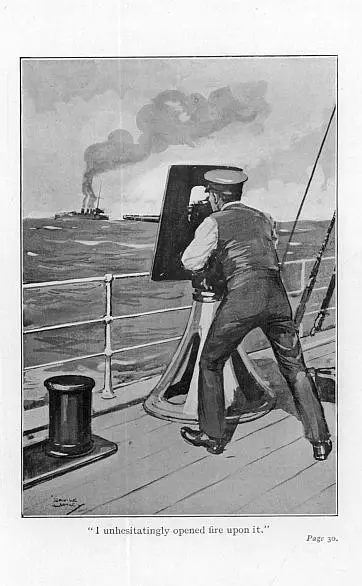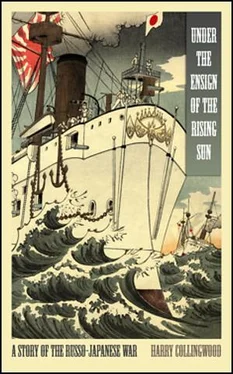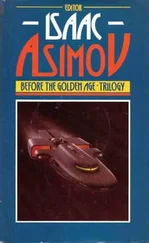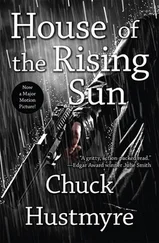Harry Collingwood - Under the Ensign of the Rising Sun
Здесь есть возможность читать онлайн «Harry Collingwood - Under the Ensign of the Rising Sun» весь текст электронной книги совершенно бесплатно (целиком полную версию без сокращений). В некоторых случаях можно слушать аудио, скачать через торрент в формате fb2 и присутствует краткое содержание. Год выпуска: 1916, Жанр: nonf_military, на английском языке. Описание произведения, (предисловие) а так же отзывы посетителей доступны на портале библиотеки ЛибКат.
- Название:Under the Ensign of the Rising Sun
- Автор:
- Жанр:
- Год:1916
- ISBN:нет данных
- Рейтинг книги:4 / 5. Голосов: 1
-
Избранное:Добавить в избранное
- Отзывы:
-
Ваша оценка:
- 80
- 1
- 2
- 3
- 4
- 5
Under the Ensign of the Rising Sun: краткое содержание, описание и аннотация
Предлагаем к чтению аннотацию, описание, краткое содержание или предисловие (зависит от того, что написал сам автор книги «Under the Ensign of the Rising Sun»). Если вы не нашли необходимую информацию о книге — напишите в комментариях, мы постараемся отыскать её.
Under the Ensign of the Rising Sun — читать онлайн бесплатно полную книгу (весь текст) целиком
Ниже представлен текст книги, разбитый по страницам. Система сохранения места последней прочитанной страницы, позволяет с удобством читать онлайн бесплатно книгу «Under the Ensign of the Rising Sun», без необходимости каждый раз заново искать на чём Вы остановились. Поставьте закладку, и сможете в любой момент перейти на страницу, на которой закончили чтение.
Интервал:
Закладка:

As soon as the destroyer had disappeared, Kusumoto retired to his cabin and wrote a lengthy account of the affair in his official log-book, getting Nakamura and me to sign it, as before, in testimony of its veracity. This he did in order to justify himself for broaching cargo and temporarily mounting the Hotchkiss and Maxim guns; and it may be said here that not only was his justification accepted, but his conduct was highly commended by the authorities.
About four bells in the first watch that night, we passed through the strait, and shifted our helm for Cape Guardafui, not calling at Aden, since we had coal enough to carry us on to Colombo; and we saw nothing more of the Russians until after our arrival in Japan on 22nd January 1904.
Chapter Three.
WAR!
On the morning of the day which witnessed my arrival in the Land of the Rising Sun, the berth-room steward who brought me my early cup of coffee informed me, with a broad grin of satisfaction, that we were in Sagami Bay; that it was a beautiful morning, but very cold; and that he would advise me to turn out at once if I desired to obtain the best possible view of Fujiyama, or Fujisan, as the Japanese love to call it. I took his advice, bathed and dressed with seamanlike celerity, and, donning a thick, warm ulster, made my way to the navigating bridge, catching my first glimpses of Japan—Shimoda, on the port, and the island of Oshima on the starboard quarter, as I went. And when I reached the bridge and took my stand beside Sadakiyo, the chief officer, I mentally returned thanks to that steward for his advice, and was glad that I had acted upon it, for the sight which met my gaze was beautiful beyond all power of description, and such as I shall never forget.
The air was clear as crystal, there was no wind, and the water was mirror-smooth, its surface dotted with fishing-boats, the unpainted hulls and white sails of which floated double, with nothing to show the junction of substance with reflection. Reflected, too, were the serrated ridges of Awa’s and Kasusa’s mountain-peaks and their ravines, dark and mysterious, with little villages of grey huts surmounted by high-pitched roofs of thatch clustering here and there along the beach to starboard, while, to port, dominating all else, towered high in air the majestic, snow-crowned peak of Fujisan, its summit blushing a delicate rosy pink in the first light of dawn. And, as I gazed, that beautiful rosy tint suddenly changed to gold as it caught the first rays of the rising sun, invisible to us, as yet, behind the high land to starboard, and as speedy as thought the light flashed down the mountain-side, revealing its matchless perfection of form, and bathing it in the glory of a hundred varied and beautiful tints.
Moving forward at reduced speed, to avoid the destruction of a few of the fishing-boats or junks that were ever becoming more numerous as the land closed in upon us on either side, we at length sighted and passed a lightship with, somewhat to my surprise, the words “Treaty Point” painted in large letters upon her red sides. If I had thought upon the matter at all, I should naturally have expected to see the name of the ship set forth in, to me, unintelligible hieroglyphics, but instead, there it was in plain homely English, and I comforted myself with the reflection that if the Japanese used British characters and words to distinguish their lightships, my as yet very imperfect knowledge of their tongue was not going to handicap me as heavily as I had feared.
In due time we arrived in the roadstead of Yokohama—not so very long ago a small fishing village, but now an important city—and made fast to our buoy. Instantly the ship was surrounded by sampans, and the occupants, not a few of whom were Chinese, swarmed aboard, eager to find buyers for the fruit, sake , and other articles which they had for sale. The jabber of tongues was incessant and deafening, and the importunities of the salesmen a trifle annoying; but Nakamura quickly sent them to the right-about, and inviting me to go up on the bridge with him—we were staying aboard to lunch with the skipper—we amused ourselves by watching the debarkation of the other passengers, my companion, between whiles, pointing out the various objects of interest visible from our standpoint.
I must confess that I was not very greatly impressed by Yokohama, as viewed from the roadstead. The most prominent object was the “Bund,” or water-front, which is a wide wharf or esplanade, backed by gardens, hotels, and well-built dwelling-houses. Then there is the “Bluff,” covered with fine villas and dwelling-houses, large and small, and of pleasing varieties of architecture; and, finally, there are the “Settlement” and the native town, about which I need say nothing.
After luncheon, by which time all the passengers but ourselves had gone ashore, we engaged a sampan, bade Kusumoto and the ship’s officers farewell, and landed in the English “hatoba,” which is a sort of floating basin, the shore end of which consists of landing-steps alongside which a whole fleet of boats can be accommodated at once. A word from Nakamura caused our baggage to be at once passed through the Customs with only the merest pretence at examination, and then, engaging rickshas, or “kurumas,” as the Japanese call them, we wended our way to the railway station, and took train for Tokio.
The journey of eighteen miles was performed in an hour, in an exceedingly comfortable first-class carriage, upholstered in red morocco; and I noticed that the guard and engine-driver of the train were Englishmen—another good sign for me, I thought. Although the speed of the train was nothing to boast of, I found the journey interesting, for the scenery, with its little grey villages of thatched, wooden houses, and the temples with their quaintly shaped roofs on the one hand, and the sea on the other, with its islands, wooded gardens, and hundreds of fishing-boats, with Fujisan always dominating everything else, were all novelties to me.
The railway does not run right into the city of Tokio, but has its terminus at the village of Shimbashi, on the outskirts; here, therefore, we left the train and, engaging kurumas for ourselves and our baggage, drove to the Imperial Hotel, where Nakamura advised me to take up my quarters pro tem , and where he also intended to stay, that night. It was then six o’clock in the evening, and too late to transact our business, so, after a wash and brush-up, we sallied forth to see something of the city.
On the following morning, at ten o’clock, I presented myself before Vice-Admiral Baron Yamamoto, the Minister of the Navy, and handed him my credentials. He received me with great politeness, read a private letter from Viscount Hayashi, of which I was the bearer, asked me a good many questions as to the length and nature of my service in the British Navy, and my experiences therein, and finally handed me my commission as Lieutenant, together with a letter to Admiral Togo, which I was to deliver to him at Sasebo, without delay.
Now, Sasebo is situated on the north-western extremity of the island of Kiushiu, and is nearer seven than six hundred miles from Tokio; moreover, I found that during my voyage out to Japan, events had been progressing by leaps and bounds—so far at least as Japan was concerned. In diplomatic circles war with Russia was regarded as not only inevitable but imminent, and preparations for the struggle were being breathlessly pushed forward day and night. Of the evacuation of Manchuria by Russia, which should have been completed on the 8th of the preceding October, there was still no sign; on the contrary, everything pointed to a determination on the part of Russia to make her occupation permanent. Actions, it is said, speak louder than words, and while the diplomats on both sides were still engaged in an apparent endeavour to settle matters amicably, the action of those on the Russian side was characterised by systematic procrastination and delay which admitted of but one interpretation, namely, that Russia had no intention to quit Manchuria until she was compelled to do so by force.
Читать дальшеИнтервал:
Закладка:
Похожие книги на «Under the Ensign of the Rising Sun»
Представляем Вашему вниманию похожие книги на «Under the Ensign of the Rising Sun» списком для выбора. Мы отобрали схожую по названию и смыслу литературу в надежде предоставить читателям больше вариантов отыскать новые, интересные, ещё непрочитанные произведения.
Обсуждение, отзывы о книге «Under the Ensign of the Rising Sun» и просто собственные мнения читателей. Оставьте ваши комментарии, напишите, что Вы думаете о произведении, его смысле или главных героях. Укажите что конкретно понравилось, а что нет, и почему Вы так считаете.












